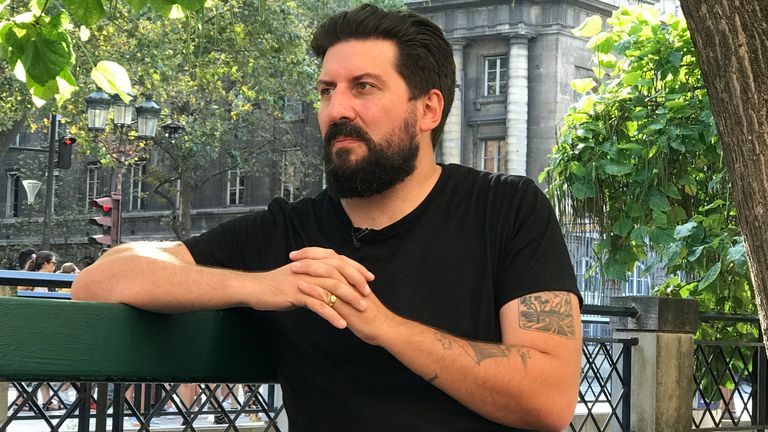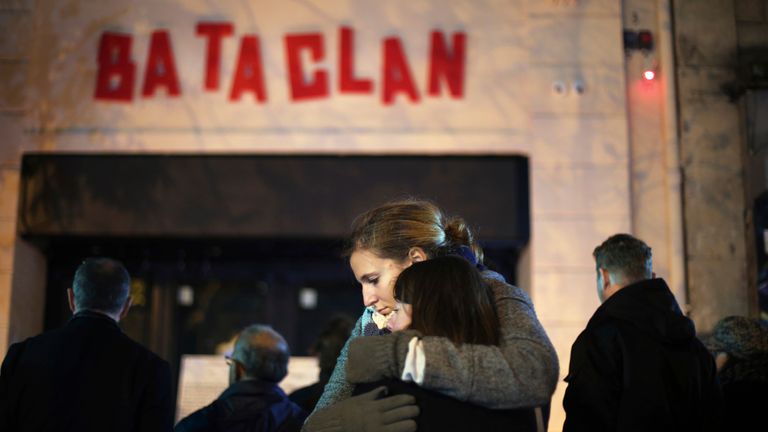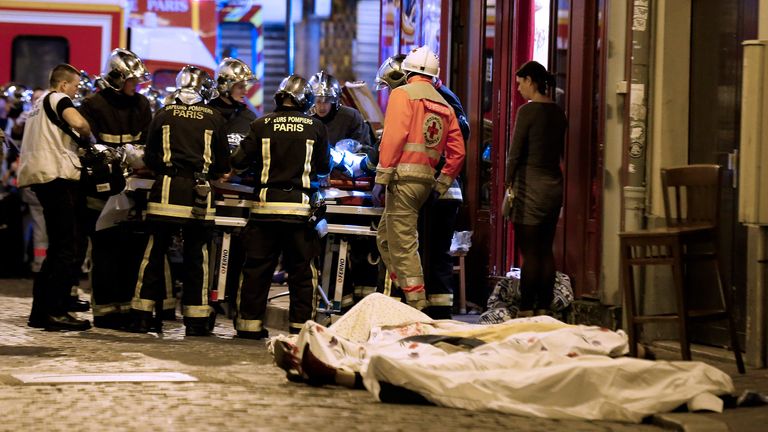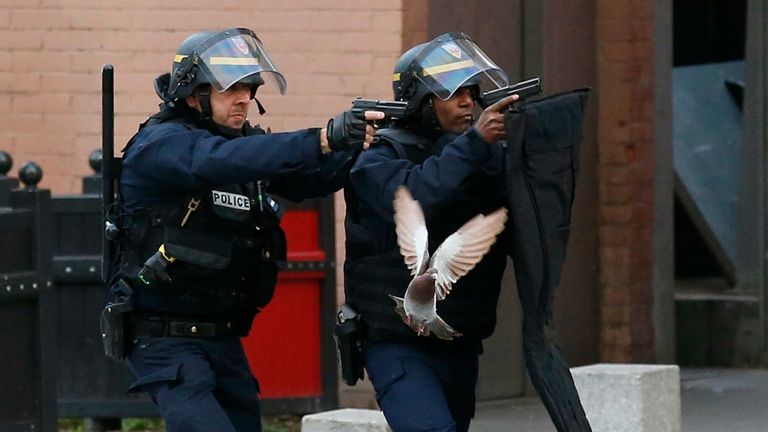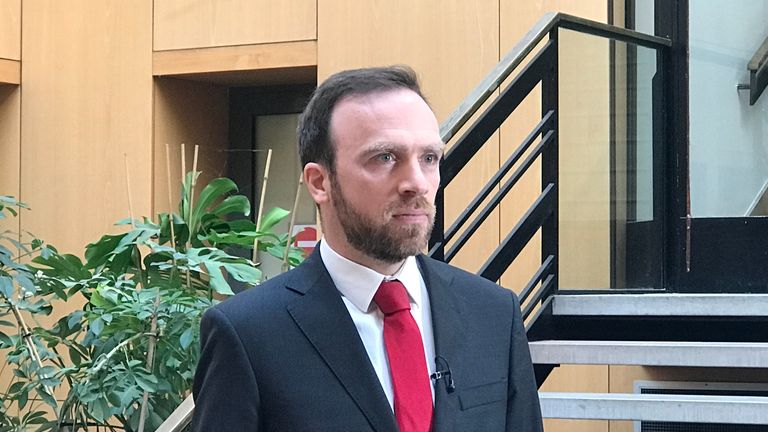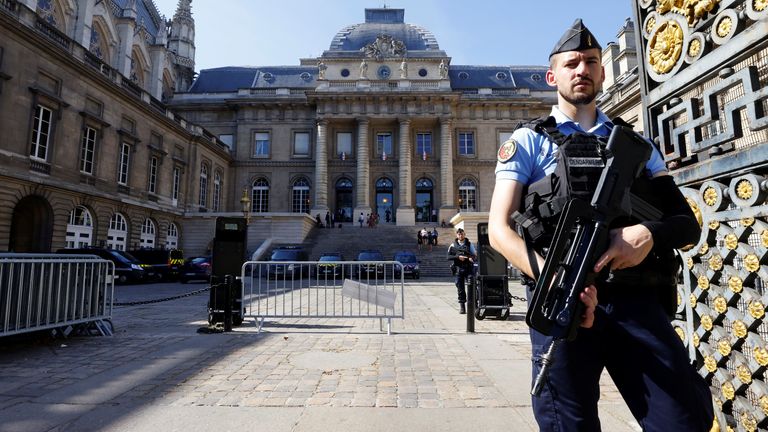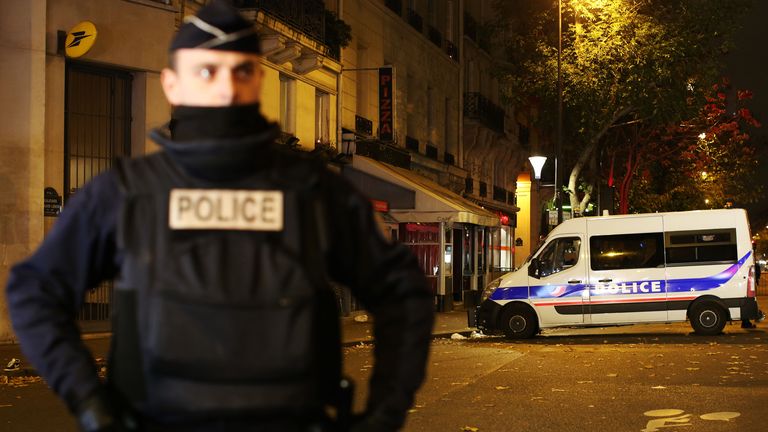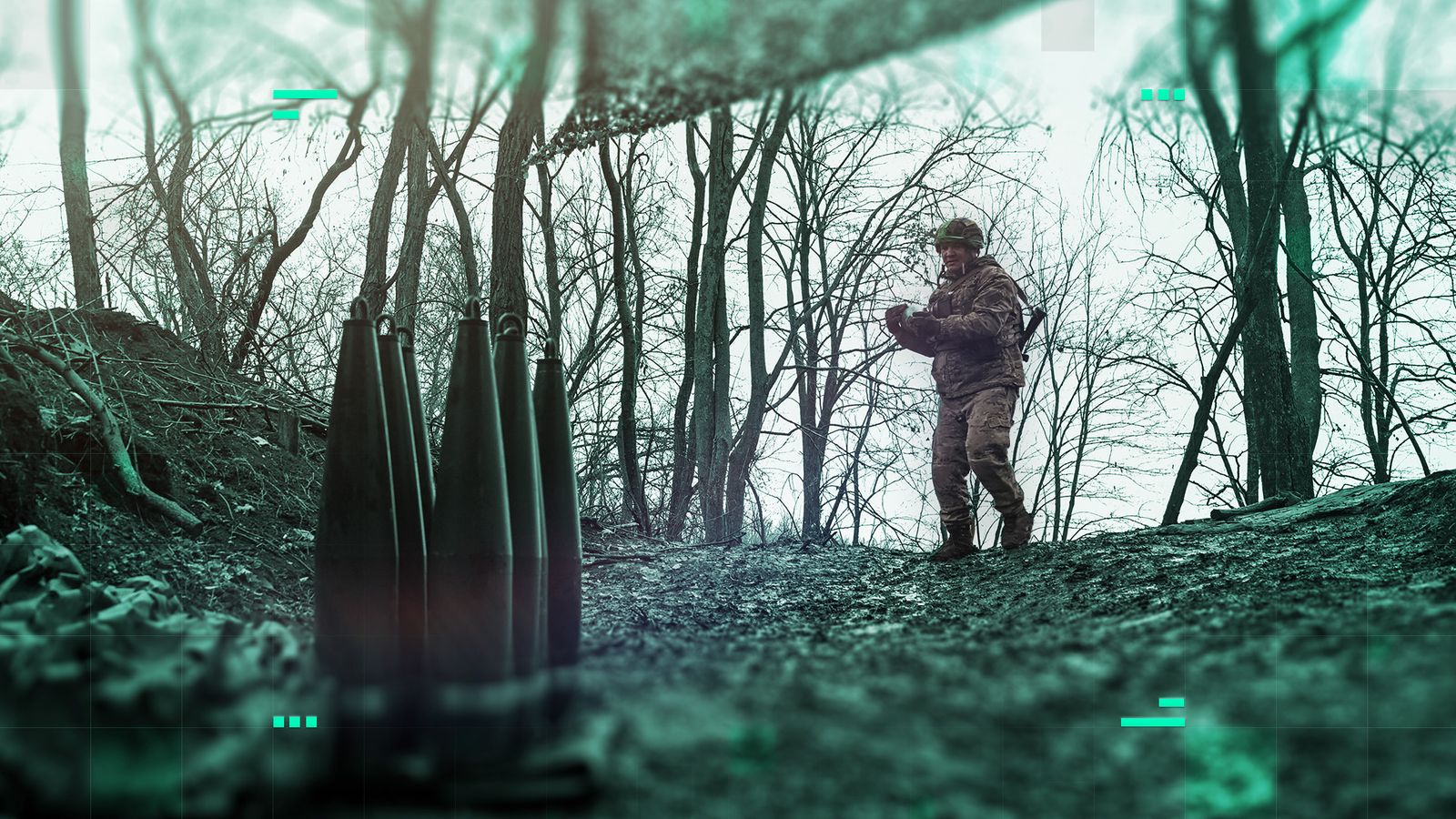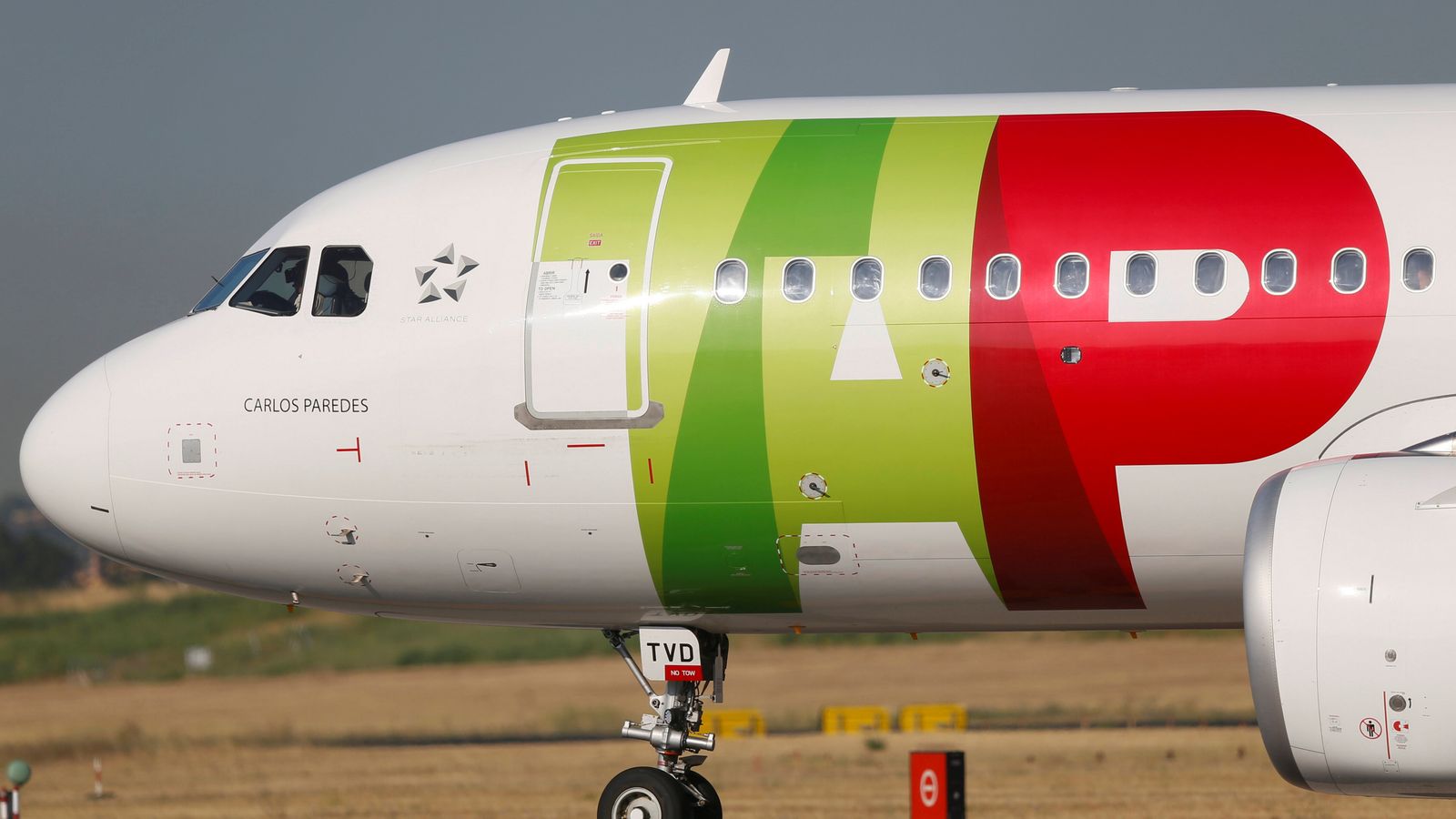Survivors and relatives of those who lost their lives during the terrorists attacks in Paris in November 2015 are hoping for justice as France’s biggest criminal trial in history begins.
Members of an IS cell armed with assault weapons and explosive vests targeted a football stadium, bars and cafes and the Bataclan music venue, killing 130 people.
Olivier Laplaud and his wife were in the Bataclan that night enjoying themselves amongst a crowd of 1,500 people. But in an instant he told us things changed.
He said: “We were dancing on the balcony and shouting and laughing and singing. It was really a good mood.”
But then he says: “We heard a very loud noise that was covering the entire music. And it was really loud. I am a musician and I play the guitar and so my first thought was that the speaker has just broken.”
Mr Laplaud says it was his wife who realised the worst. He explains: “My wife, whose father used to work as a policeman, identified a weapon sound. And she grabbed me by the hand to hide. I just saw over the balcony some flames from what I identified as guns and the people in the area in front of the stage had just tried to escape and some were already shot.”
The couple managed to crawl to a dressing room where they hid along with dozens of others listening to what Mr Laplaud calls “the massacre” outside.
The wait for help was long – it was more than two hours before the police entered. But the sound the couple heard as they did so terrified them more than ever.
Mr Laplaud says: “The first policemen entered the Bataclan and shot the first terrorist who was on the stage and his belt exploded. And the blast was very, very loud, it made all our room shake. And I was just thinking they not only have weapons but they have grenades or whatever and the venue could explode, could burn, and we are trapped in that case.”
Mr Laplaud says the start of the trial is an important moment for survivors and the victims’ families. But it will also stir strong and painful memories.
The worst for him are those after the police came to rescue them and he had to walk through the carnage of the Bataclan.
He says: “Still now I have the images of the corpses next to my feet. The policemen told us to close our eyes and to just follow the voices of the other policemen but as I was hitting something on the floor or slipping on something, I just had to look at what I was doing and I saw bodies and people shot and heard people moaning in the pits. And still today I see them and I hear them.”
Mr Laplaud will be amongst so many who will have to re-live what they experienced or listen to what happened to their loved ones, on 13 November 2015. Twenty people will go on trial for the attacks which sent France into a state of emergency.
Six of the accused will be tried in absentia, with five believed to have likely died in Syria.
Victims and families are hoping for justice but the shock and pain at what happened on that Friday night six years ago was compounded in the days and weeks that followed by the revelation that most of those believed to have been involved in the attacks had either French or Belgian nationality.
With this trial, France is confronting home-grown terrorism.
Central to the hearing will be French citizen Salah Abdeslam who prosecutors say is the sole survivor of the IS terrorists who killed and maimed on a horrendous scale in Paris.
He allegedly ditched his explosive vest and it would be five months before he was arrested in Brussels.
His childhood friend Mohamed Abrini – who is believed to have driven Abdeslam away from Paris – was later caught on camera during the attacks on Brussels airport and subways.
Another friend, Abdelhamid Abaaoud – said to be the mastermind of the cell – was killed in a raid on an apartment block in the St Denis area of Paris five days after the attacks.
Marc Hecker who is a terrorism expert and director of research at the French Institute for International Relations, tells us: “Actually, homegrown terrorism has become the norm over the past 20 years. And that’s not actually the main surprise here.
“The main characteristics of this trial are obviously the scale of the attack but also the fact that these young people, being born and raised in France, travelled to Syria and then got a real, almost professional paramilitary training and then were able to come back to Europe and perpetrate those very deadly attacks.”
He says France has to examine the reasons why young men become radicalised. It has to be addressed because the numbers are growing.
He said: “We have a database in France of radicalised individuals that was created in 2015. And actually it started growing and growing. And now there are approximately 23,000 individuals in this database.
“And amongst these 23,000, you have 8,000 individuals who are actively surveilled and monitored by the intelligence agency. That’s a lot. You cannot have a policeman behind each of these individuals.”
The trial will be held in a specially created high-security courtroom inside the former Palace of Justice in Paris. Testimony from 1,800 victims and families will be heard during what is expected to be a nine-month case.
Salah Abdeslam is the only defendant facing murder charges. Most are accused of facilitating terrorism, providing money, transport, weapons and explosives.
During previous court appearances Abdeslam has refused to speak or co-operate with prosecutors. Few have high expectations he will behave differently this time.
And that, Olivier Laplaud says, will be difficult for victims and the loved ones of those who died.
“Silence is a provocation” he says, adding there are many things he would like to know including why Abdeslam took his explosive belt off.
“But I don’t expect much from him,” he adds.

